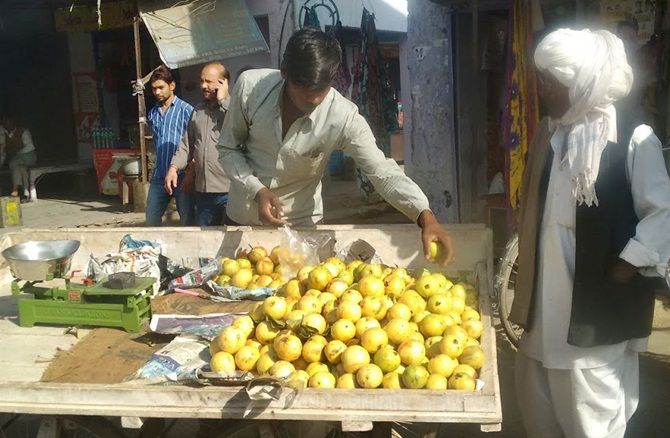Prime Minister Narendra Modi's landslide election in 2014 raised hopes he would draw a line under India's socialist past, cut welfare and reduce the government's role in business.

Prime Minister Narendra Modi wants the federal budget unveiled on Monday to appeal to India's rural poor, officials familiar with his thinking said, in a strategy shift that could boost his ruling party in coming state elections but disappoint investors.
His government is expected to increase spending on agriculture, health and social sectors, a change from its focus on infrastructure spending and market reforms, they said.
"We will have to reform the agriculture markets, invest more resources to deal with the agrarian crisis - all of this could be an integral part of this year's budget," said Ramesh Chand, a member of the federal planning body Niti Aayog that gave the finance ministry inputs.
"The budget could provide resources to expand the coverage and effectiveness of schemes such as crop insurance, food and fertilizer subsidy, and irrigation," Chand told Reuters.
On Sunday, a finance ministry spokesman could not be reached for comment on the budget themes.
Modi's landslide election in 2014 raised hopes he would draw a line under India's socialist past, cut welfare and reduce the government's role in business.
In its first two years in power, the government splurged on roads and railways at the expense of welfare programmes in the hope of creating economic stimulus.
Modi's gamble was that infrastructure investment would eventually generate dividends for the poor and the rural community, which makes up most of India's 1.3 billion population.
BACK-TO-BACK DROUGHTS
But rising rural distress after back-to-back droughts and a recent heavy election defeat in a largely agricultural state have upset that calculus.
It has also left the government open to attacks by the opposition, who use a Hindi phrase to deride Modi's administration as a "suit and boot" government that only works in the interest of the rich.
"He is starting all over again," an official familiar with Modi's thinking said.
"The image of Modi as a supporter of big business has been damaging. This budget will change that narrative."
The budget is expected to counter criticism ahead of key elections in heartland farming states such as West Bengal this year and Uttar Pradesh next year.
But the switch in focus is likely to disappoint investors and markets.
Increased social spending may hike India's closely watched fiscal deficit to 3.8 percent of GDP next financial year from a target of 3.5 percent, one official said.
"The markets and rating agencies will be disappointed if the deficit reaches that level," said D.H. Pai Panandiker, president of RPG Foundation, an economic policy group in New Delhi.
Last week, yields on India's most-traded bonds touched their highest level in 18 months and the rupee slumped on fears of a higher deficit level.
'VILLAGES, POOR AND FARMERS'
The Hindu nationalist Rashtriya Swayamsevak Sangh (RSS), the powerful ideological parent of Modi's Bharatiya Janata Party (BJP), has also been urging the government to do more to help distressed farmers.
RSS officials last month told Finance Minister Arun Jaitley to do more for them in a four-hour meeting only scheduled for one, people familiar with the talks said.
"It was for the first time we felt that Jaitley was keen to understand the crisis in farmlands," one RSS official said.
One government official said the budget's focus will be on "gaon, garib and kisan (villages, the poor and farmers)."
The government has been advised to double spending to about $1.2 billion on a crop insurance programme and boost irrigation expenditure, officials said.
It may launch a programme to directly transfer fertilizer subsidies to farmers' bank accounts, they said.
Another official said there may be a new $870 million programme for farmers, where scientists would test their soil and then recommend fertilizers to boost agricultural yields.
The government has also been considering increasing the subsidy to fund the world's largest food for the poor programme by 13 percent to 1.40 trillion rupees ($20.4 billion).
The administration already signalled it is ready to pursue a more populist path with last week's annual railway budget, when it shied away from raising passenger train fares.
"The budget's central theme will be to merge voters' expectations with our political ambition," a senior BJP leader and a minister in the federal government said.
(Additional reporting by Mayank Bhardwaj, Rajesh Kumar Singh and Tommy Wilkes)







 © 2025
© 2025